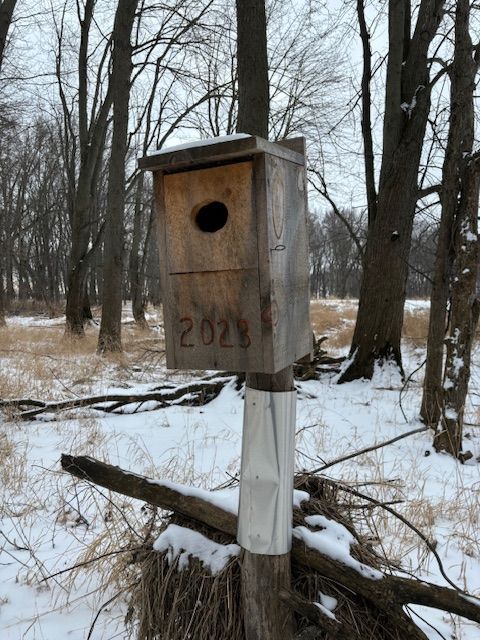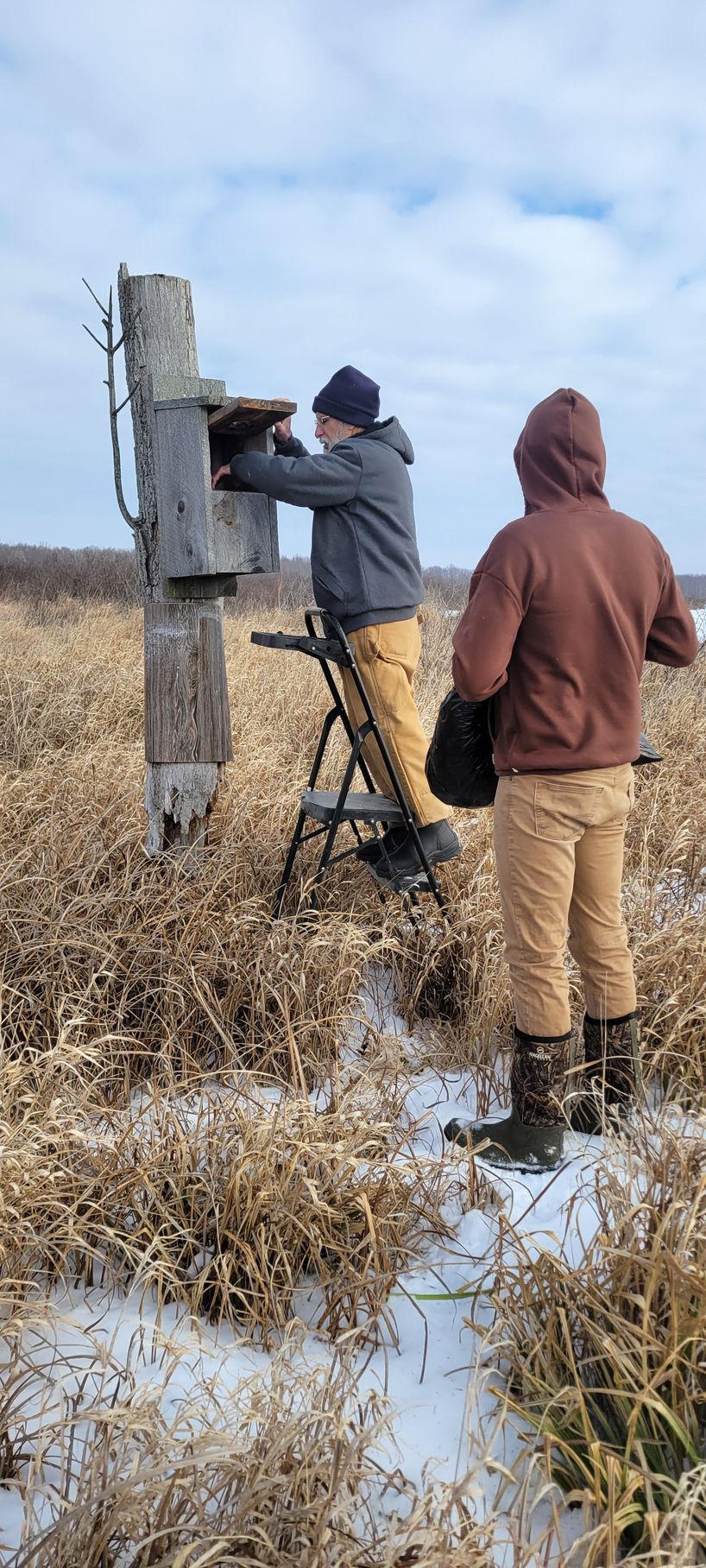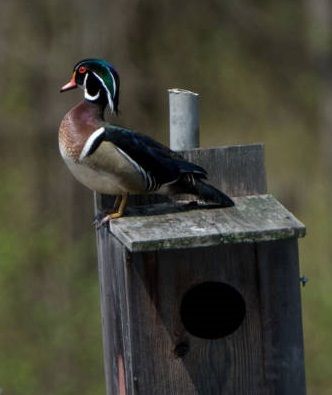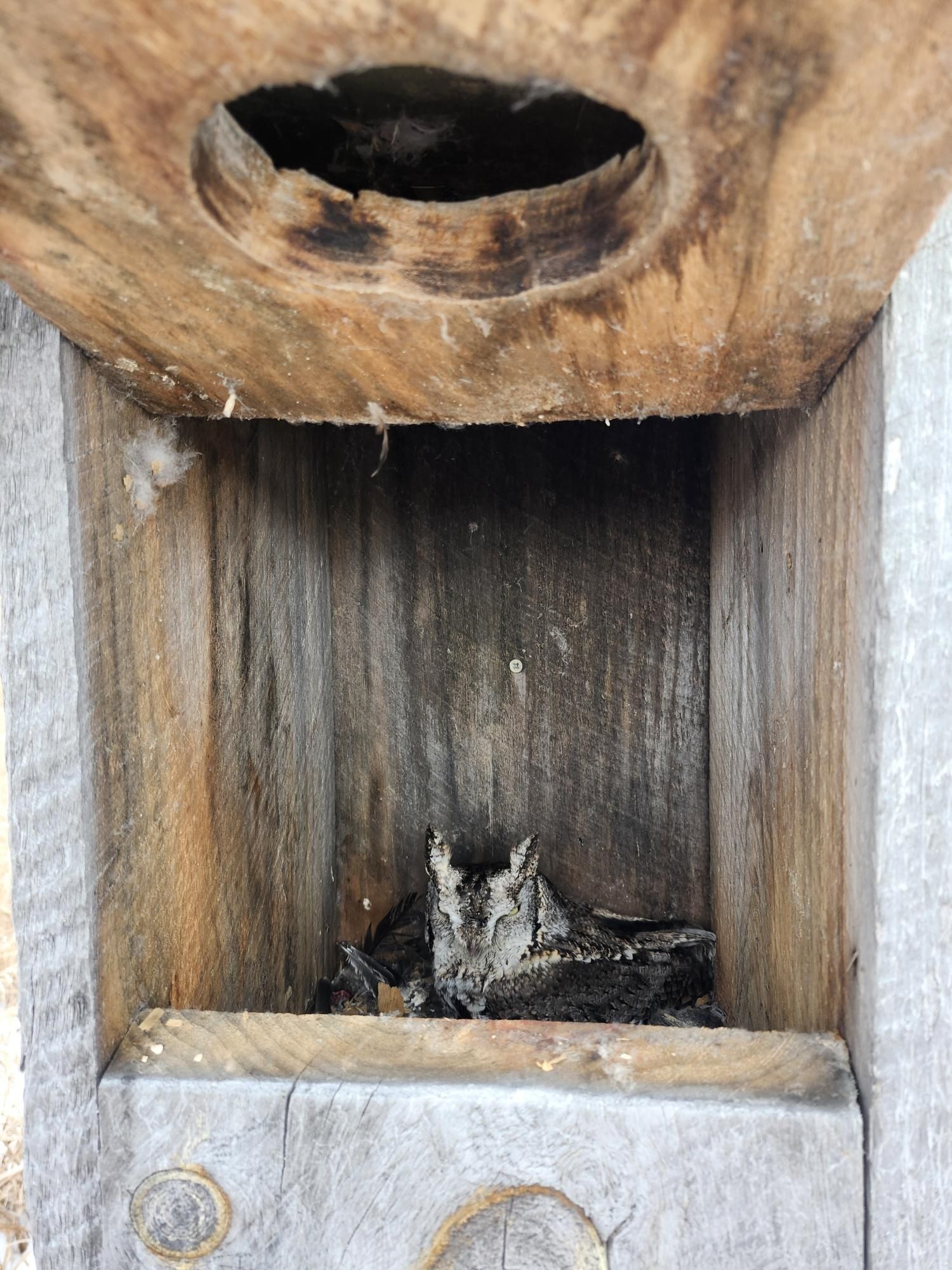On the Ground: Wood Duck Boxes at Shiawassee River State Game Area
On Saturday, January 25, 2025, MUCC’s On the Ground program partnered with the Michigan Department of Natural Resources (DNR) to improve wood duck nest boxes at Shiawassee River State Game Area in Saginaw County. This area consists of approximately 10,000 acres of managed waterfowl habitat, making it the largest in the state. It is also a very popular destination for wildlife viewing and birding in addition to waterfowl hunting.
Volunteers Maintain Nest Boxes
During this project, volunteers split off into three different groups at various locations within the state game area that contained wood duck nest boxes. Volunteers cataloged the GPS coordinates of each nest box onto a data sheet and replaced old nesting material with fresh shavings. Any use of the nest boxes by either wood ducks or other wildlife was also noted. Additionally, volunteers removed existing nest boxes from the area that were in disrepair. In total, volunteers improved approximately 56.5 acres of wildlife habitat directly through this project.
Why is it Important?
Maintaining nest boxes for waterfowl species like wood ducks is important to ensure this species is around for many years to come. Wood ducks are very popular among waterfowl hunters and birders alike due to their striking appearance. They are second only to mallards in being the most common species taken during waterfowl season in Michigan (Michigan Department of Natural Resources). Wood ducks are cavity-nesting birds, meaning they build their nests inside of a sheltered chamber such as a tree hole or cavity. Artificial nest boxes are a great alternative for them when suitable nesting habitat becomes scarce. Wood ducks were almost pushed to extinction in the late 1800s due to overhunting and habitat loss, but thanks to the extensive use of nest boxes, as many as 3 million breeding pairs exist across North America today (U.S. Fish and Wildlife Service).
Nest boxes are also occasionally used by other wildlife species. One of Michigan’s owl species (the eastern screech owl) likes to nest in holes and tree cavities and will often occupy wood duck nest boxes if available. These owls do not build a nest of their own, so finding a suitable place to nest either in an abandoned nest hole or a nest box is crucial for their survival (Cornell University Lab of Ornithology). Some volunteers at this event were able to witness first-hand the importance of maintaining these nest boxes for multiple species after finding multiple screech owls inside some of the boxes. Other species of wildlife that may use nest boxes include small mammals like mice.
Learn More
Want to stay up to date and see where On the Ground goes next? Visit mucc.org/on-the-ground for more information and a list of upcoming events. We work to conserve and enhance public lands by hosting volunteer projects with the goal of improving wildlife habitat. Common projects include invasive species removal, wood duck boxes, river cleanups, tree plantings, and more. All ages are welcome, so bring a friend or two if you’d like! We hope to see you at a future event.
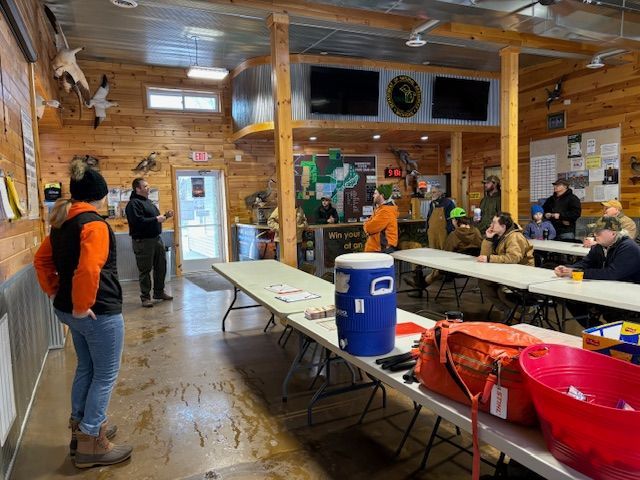
Recent Posts


